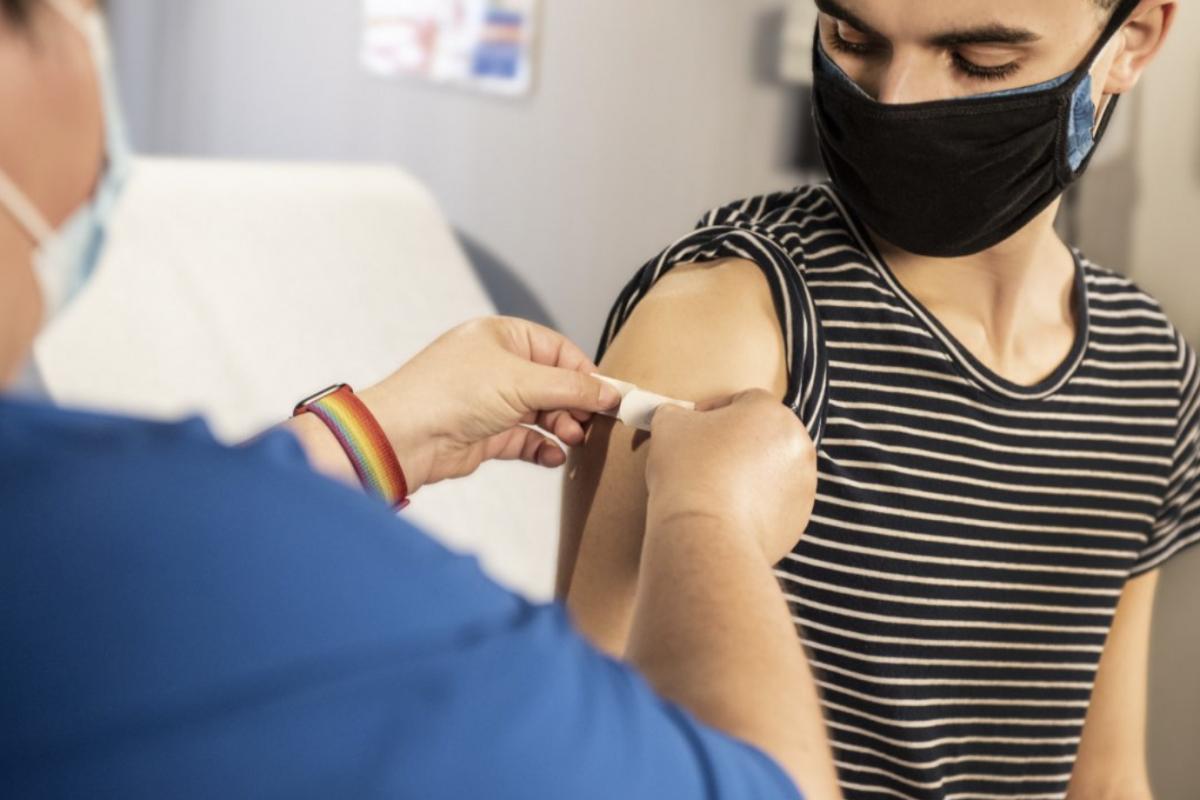Senators continued to push Maryland Health Secretary Dennis R. Schrader to exercise his authority to mandate COVID-19 vaccination for eligible school-age students Monday.
“I brought this up in the last briefing last month and you weren’t sure that you had the authority to do so and it sounds like this month, you’re still uncertain and not willing to explore that as a possibility,” Sen. Clarence Lam (D-Howard) said at a meeting of the Senate Vaccine Oversight Workgroup Monday. “I hope that next month you’ll be able to bring back some additional considerations as to how you can improve those rates in schools through a mandatory vaccination program in conjunction with [the Maryland State Department of Education].”
According to a presentation from the Office of Program Evaluation and Government Accountability for the Department of Legislative Services, since school has been in session, the sharpest increase in COVID positivity rates in the state has been among children.
About 72% of children between 12 and 17 years old have received at least one shot.
Lam asked Schrader what is being done to encourage eligible minors to get vaccinated.
Schrader said that the Department of Health has “two tracks of priority:” getting booster shots in the arms of the state’s most vulnerable and tracking down the nearly one million eligible Marylanders who have yet to get vaccinated.
But Schrader also clearly demonstrated his disinterest in mandating COVID-19 vaccines for school-aged students.
Under Maryland’s education code, the Department of Health has the ability to issue regulations that require students to be inoculated to attend school.
“You do have the tool to be able to require vaccination of students going into schools,” said Lam. “Is that right, is that something that you’re looking at?”
Schrader responded “not at the moment.” He said there have been conversations about working with school systems to increase the vaccination rate in 12- to 17-year-olds but he wants to respect local school districts’ authority.
“We really need to rely on the schools to help us with this,” Schrader said. “They’re autonomous and we want to make sure we respect that autonomy in working with them.”
Lam, a physician, pushed back and said the state is falling short on protecting its kids.
“I am concerned about the spread of COVID in our schools and you have a tool that you can use as the secretary to require this to be required vaccination and students coming into our schools, but it sounds as though [the Department of Health] is not reaching for this tool or is not willing to do so,” he said.
Schrader said the health department’s focus now is increasing the rate for routine vaccinations in elementary school students.
“We want to make sure that those are taken care of, but we’ll go back and take a look at your suggestion,” he said.
After other senators pressed the health department to take more decisive action, Sen. James C. Rosapepe (D-Prince George’s) grew frustrated and asked Schrader where the buck stops: with the State Department of Education or with the Department of Health?
“So, we have the adults pointing fingers at each other while the kids are suffering and the parents are suffering,” he said.
Rosapepe told Schrader that he should exercise the power he has to mandate the vaccine in schools.
But, “if for whatever political reason” he decides not to do that, Rosapepe suggested that the Department of Health “aggressively work with the school systems to identify in every school which kids have been vaccinated which kids haven’t been vaccinated” through the state’s ImmuNet vaccination record system and bring mobile vaccination units to those locations.
Rosapepe also proposed rating school systems like the Department of Health rates nursing homes based on their rates of vaccination.
“A couple of suggestions if you’re not willing to go with mandatory vaccinations,” he said.
By Hannah Gaskill


Write a Letter to the Editor on this Article
We encourage readers to offer their point of view on this article by submitting the following form. Editing is sometimes necessary and is done at the discretion of the editorial staff.